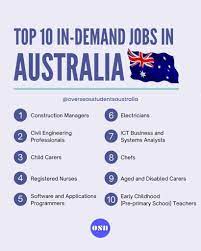The dynamic field of real estate development is essential in forming the urban environment. We will examine the duties, abilities, and difficulties associated with the real estate development industry as we delve into the nuances of this occupation in this post.
Real Estate Developer Job Description
Land is acquired by and developed by a real estate developer, who then transforms it into an asset. As part of their work, they must coordinate with experts, collect and analyze data, bargain with land sellers, and prepare properties for development. They must also conduct in-depth research and analyses. Together with setting budgets and policies, creating deadlines and goals, producing leads for possible customers, and keeping an open channel of communication with contractors to ensure a seamless and effective workflow, they also supervise construction operations from planning to completion.
Real Estate Developer Job Duties
A real estate developer typically has a wide range of responsibilities, which can include:
- Managing the construction process to ensure that projects meet deadlines and budgets
- Negotiating contracts with vendors, contractors, subcontractors, and suppliers to obtain the best possible price
- Performing market research to identify areas where new developments can be profitably built or existing developments can be improved
- Conducting feasibility studies to determine if a project is financially viable and identifying potential problems in the design or engineering phase of construction
- Hiring architects, engineers, contractors, and other professionals to design and build residential and commercial buildings
- Working with banks to obtain financing for a development project, including obtaining appraisals for property purchases
- Identifying available land for development and negotiating purchases with owners of property
- Negotiating leases with tenants to rent space in buildings being developed
- Coordinating with architects and engineers during construction to ensure that designs meet local codes and regulations
Real Estate Developer Salary & Outlook
Real estate developers’ salaries vary depending on their level of education, years of experience, and the size and type of development project they are working on.
- Median Annual Salary: $85,000 ($40.87/hour)
- Top 10% Annual Salary: $142,000 ($68.27/hour)
Real Estate Developer Job Requirements
A real estate developer typically needs to have the following qualifications:
Education: Real estate developers are typically required to have a minimum of a bachelor’s degree. Some of the most common majors for real estate developers are business administration, finance and construction management.
Training & Experience: Real estate developers typically receive on-the-job training in the form of an apprenticeship or internship. During these periods, they learn the skills and knowledge necessary to perform their job duties. Real estate developers may also receive additional training in the form of seminars or conferences.
Certifications & Licenses: While certifications are not always required, they can be useful for real estate developers in certain circumstances. Whether certifications are necessary will depend on the location and type of development a real estate developer is involved in.
Real Estate Developer Skills
Real estate developers need the following skills in order to be successful:
Project management: Property development is managed by real estate developers from the very beginning of planning to the very end of construction. The many responsibilities involved in real estate development, such as budget management, scheduling, task delegation to other experts, and project management from beginning to end, can be managed more effectively with project management skills.
Marketing and sales: Because they frequently deal directly with clients and customers, real estate developers frequently possess strong marketing and sales abilities. They might have to persuade clients to choose their project over competing ones and to invest in a project. In order to be hired as a developer, they might also need to persuade clients.
Financing: Financing is the process by which real estate developers raise money to fund their projects. This process requires knowledge of financial institutions, how to apply for loans and how to structure a contract. Real estate developers may also need to know how to apply for government grants and other forms of financial aid.
Construction: Real estate developers work with contractors to build new properties. Having knowledge of construction processes and procedures can help you work with contractors to ensure the project is completed on time and within budget.
Negotiation: Negotiation is the process by which two parties come to an agreement. Real estate developers often negotiate with clients, suppliers and contractors to ensure they meet their needs and agree to the terms of a contract. This is an important skill for real estate developers because it can help them complete projects and generate revenue.
Conclusion
In conclusion, a real estate developer must possess a wide range of abilities, know-how, and a deep comprehension of market dynamics. In this constantly changing industry, aspiring developers should welcome challenges, maintain their adaptability, and persistently look for growth opportunities.
FAQs
- What qualifications do I need to become a real estate developer?
- A degree in real estate, urban planning, or business is typically beneficial. Practical experience is also crucial.
- How do real estate developers handle financial challenges in projects?
- Developers employ financial planning strategies, risk management, and sound investment decisions to navigate challenges.
- Is sustainable development essential in the real estate industry?
- Yes, sustainability is increasingly crucial. Developers are incorporating eco-friendly practices to meet environmental standards and market demands.
- What role does technology play in modern real estate development?
- Technology streamlines processes, from project planning to marketing. Virtual reality, artificial intelligence, and smart technology are integral components.
- Can I become a real estate developer without a formal education in the field?
- While a relevant degree is beneficial, practical experience and networking are equally important in the real estate industry.






